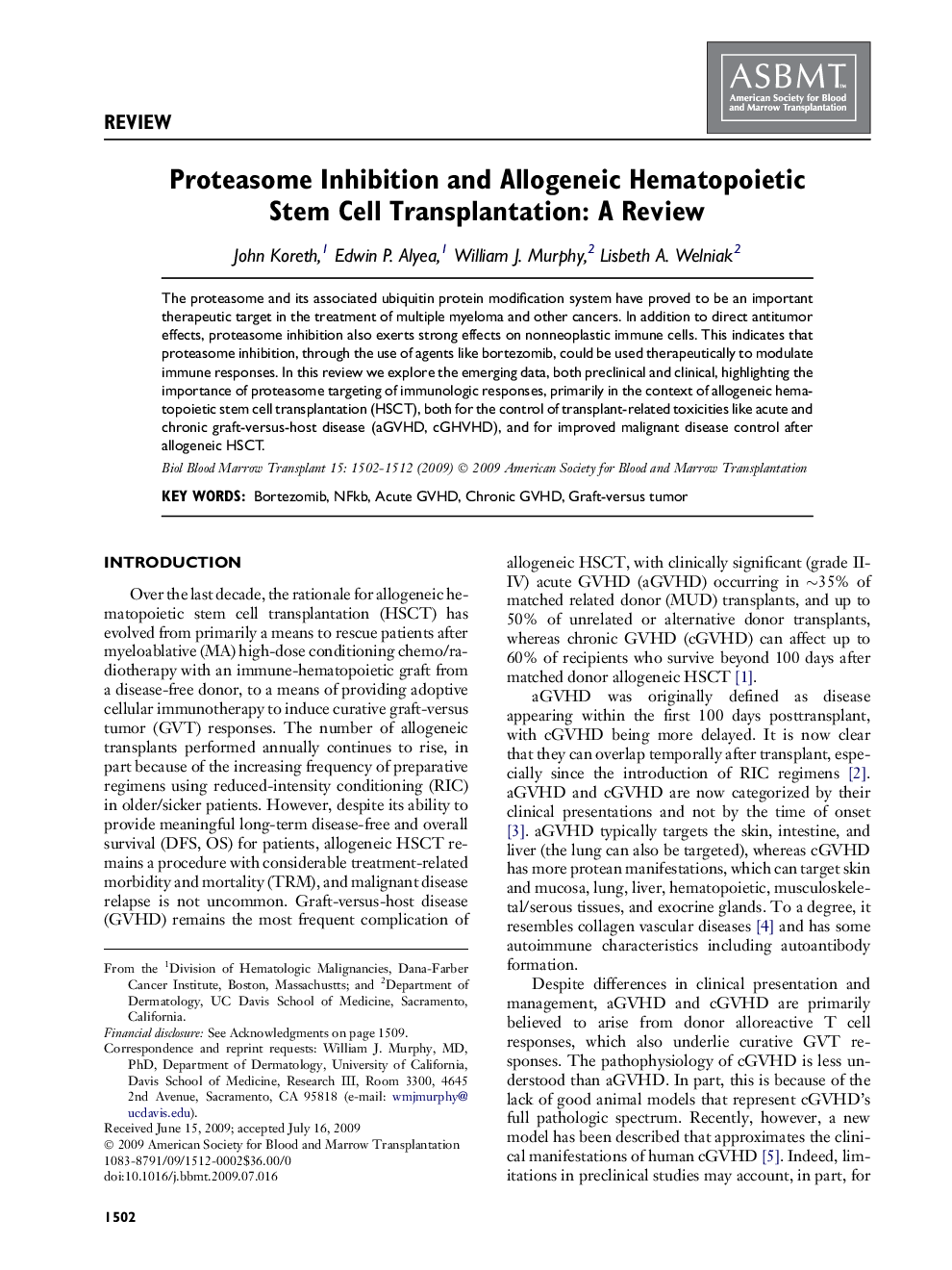| Article ID | Journal | Published Year | Pages | File Type |
|---|---|---|---|---|
| 8431666 | Biology of Blood and Marrow Transplantation | 2009 | 11 Pages |
Abstract
The proteasome and its associated ubiquitin protein modification system have proved to be an important therapeutic target in the treatment of multiple myeloma and other cancers. In addition to direct antitumor effects, proteasome inhibition also exerts strong effects on nonneoplastic immune cells. This indicates that proteasome inhibition, through the use of agents like bortezomib, could be used therapeutically to modulate immune responses. In this review we explore the emerging data, both preclinical and clinical, highlighting the importance of proteasome targeting of immunologic responses, primarily in the context of allogeneic hematopoietic stem cell transplantation (HSCT), both for the control of transplant-related toxicities like acute and chronic graft-versus-host disease (aGVHD, cGHVHD), and for improved malignant disease control after allogeneic HSCT.
Keywords
Related Topics
Life Sciences
Biochemistry, Genetics and Molecular Biology
Cancer Research
Authors
John Koreth, Edwin P. Alyea, William J. Murphy, Lisbeth A. Welniak,
